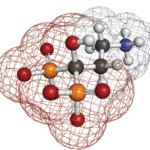
Data indicate that patients with RA tend to accumulate many more episodes of heart failure and have a higher risk of mortality following heart failure than do patients without RA.
Africa Studio/shutterstock.com
CHICAGO—Sherine E. Gabriel, MD, MSc, professor of medicine at Rutgers Medical School in Newark, N.J., and a past president of the ACR, presented an overview of cardiovascular disease and rheumatology on a Saturday morning to a room overflowing with rheumatologists attending the ACR’s State-of-the-Art Clinical Symposium in April. She noted that physicians have known for a long time that patients with rheumatoid arthritis (RA) have significantly increased overall mortality compared with non-RA patients. In particular, poorer cardiovascular survival in patients with RA compared with non-RA patients appears to account for most of the increased mortality associated with RA. Even though cardiologists have been able to decrease mortality in non-RA patients, people with RA have not benefitted from those breakthroughs.
“Now, however, things are starting to change,” explained Dr. Gabriel. This may be because rheumatologists have become successful at achieving tighter immunological control in patients with RA and have thereby improved the treatment of RA and also its comorbidities.
Heart Disease & Failure in RA Today
Dr. Gabriel acknowledged, “The news is not all entirely good, though. … We still see people with rheumatoid arthritis having higher mortality.” Unfortunately, even at the time of diagnosis of RA, patients with RA are at a threefold higher risk of having been hospitalized for a myocardial infarction than patients without RA. Interestingly, however, they are approximately half as likely to present with angina pectoris. This suggests that ischemic heart disease precedes RA and is often silent in this patient population. In addition, patients with RA are approximately one-and-a-half times more likely to die after a myocardial infarction than are patients without RA. This difference is true even though patients with RA are just as likely as patients without RA to be treated aggressively by acute reperfusion therapy and/or be prescribed cardiovascular medications.
Heart failure in patients with RA has been less well studied than ischemic heart disease. That said, the data indicate that patients with RA tend to accumulate many more episodes of heart failure and have a higher risk of mortality following heart failure than do patients without RA. This is true even after adjustments for age and sex, suggesting that the increased cardiovascular risk stems organically from RA.
Patients with RA and heart failure also have a higher rate of hospitalization and longer hospital stays than heart failure patients without RA. In addition, in patients with RA, the heart failure tends to happen with preserved ejection fraction, suggesting that not only is the presentation of heart failure different in this patient population, but the nature of the cardiovascular disease is different.

